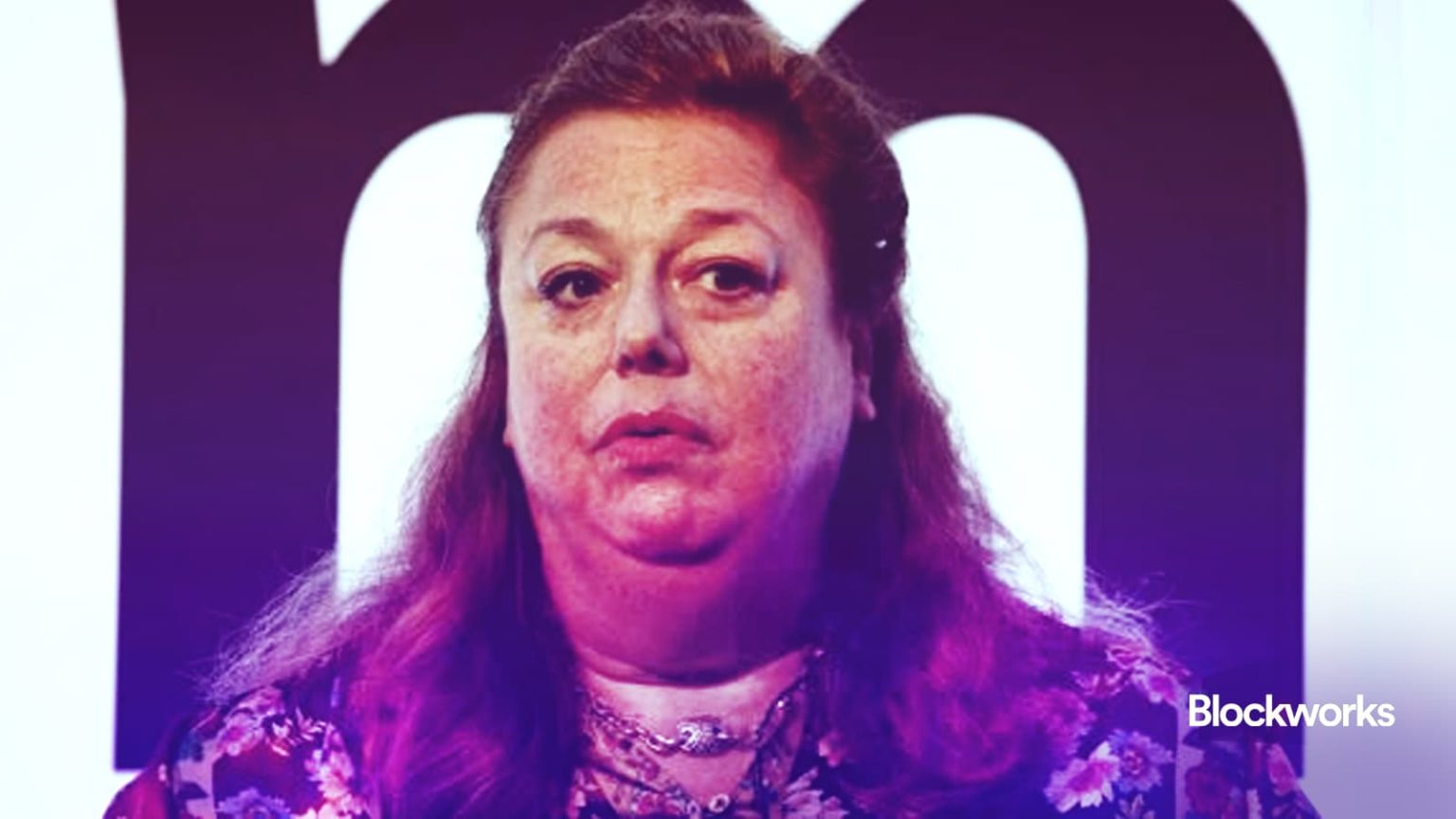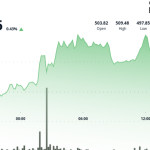Financial Infrastructure Transformation: Franklin Templeton Innovation Head Predicts On-Chain Shift
An overhaul of financial market infrastructure is set to occur, according to Franklin Templeton innovation head Sandy Kaul—and likely faster than many expect.
“I think our entire product suite will be onchain at some point in the future. It is simply [about], ‘What is the migration path to getting there?’
Kaul argues that financial institutions, central banks, and corporations currently using account-based infrastructure will transition to wallet-based systems built atop blockchains for efficiency and other benefits.
While estimates suggest Frankin Templeton’s OnChain stabilcoin market could expand significantly, Kaul suggests the potential growth for stablecoins (which she labels as “checking account equivalents”) may be even greater than currently projected.
She emphasized, however, that banks—not crypto-native players—will drive substantial market expansion.
“I think banks are going to realize their future is wallet-based, and they’ll begin issuing their own stablecoins and tokenized cash. That is where trillions of dollars of deposits sit, so growth will be very rapid.”
Alongside stablecoins, Kaul predicts tokenized money market funds and broader tokenization of assets like CLOs, private credit, and public equities will “explode” as blockchain adoption matures.
On-Chain Transformation Imperative
Franklin Templeton launched its OnChain US Government Money Fund in 2021, managing $740 million as of June 30. Kaul explained illiquid assets like collateralized loan obligations (CLOs) and private credit face a natural migration to on-chain systems for operational efficiency.
Moreover, she believes moving established ETFs on-chain could nearly eliminate the need for costly “wrapped” token solutions, as smart contracts can replicate the functionality ETFs currently provide.
The Journey: Planning and Patience
Kaul acknowledged the traditional finance world’s pace, estimating it might take a decade or more to complete the full transformation, but insisting Franklin Templeton is among the first asset managers positioned strategically in this space.
Navigating Regulatory and KYC Hurdles
“There’s a foundational conflict between traditional KYC/AML and permissionless ecosystems. The right blend of protection… is what needs more focus.”
While acknowledging progress, Kaul described the Know Your Customer (KYC) and Anti-Money Laundering (AML) regulations as significant hurdles requiring adaptation—likely resulting in a “permissioned” rather than fully permissionless environment.
SEC Engagement and Regulatory Clarity
Kaul shared insights from her participation in an SEC roundtable on tokenization, highlighting the agency’s internal receptiveness to developing responsible policies but noting a lack of organizational support for implementing those policies.
A key focus remains defining regulatory pathways allowing seamless integration between traditional securities and digital tokens—potentially enabling investors to hold both Apple stock and Ethereum in the same portfolio with regulatory clarity.
“Why wouldn’t I want Apple stock and Ethereum in the same portfolio? They offer competing services. We need regulatory clarity to enable this relative-value trading.”












